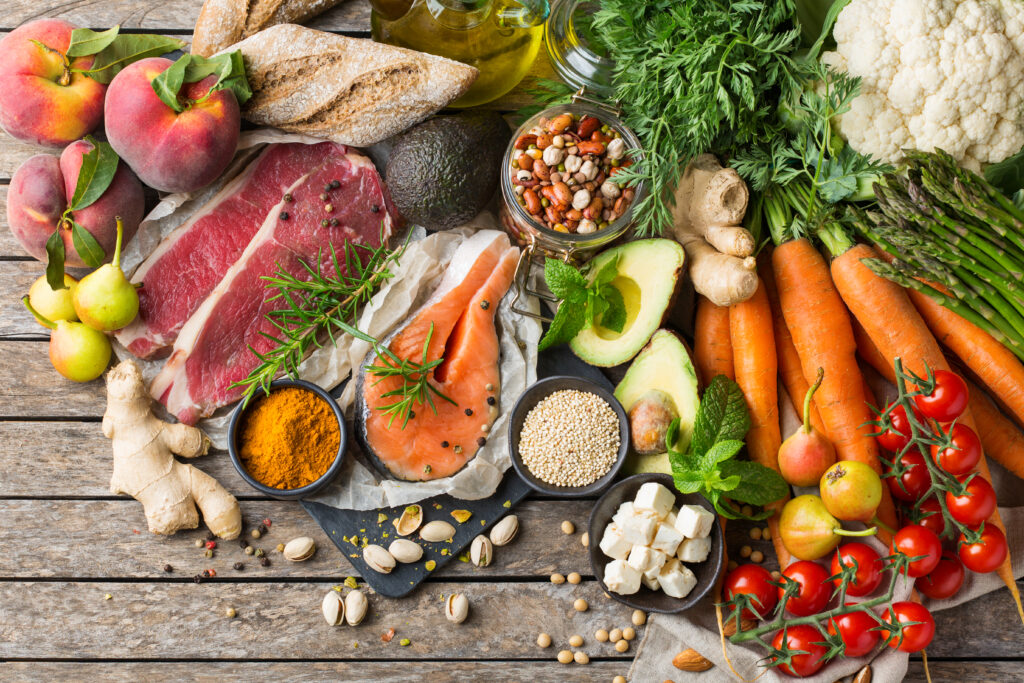When you start looking at ways to reduce your stress levels, you probably focus on how much work you are doing, what your daily responsibilities are, and whether or not you practice good self-care. These are all very important, but don’t forget about the simplest choices you make every day that could be impacting your stress.

A common one has to do with your diet, where some foods can increase foods, while others help to reduce it. In fact, your diet plays a significant role in either escalating or mitigating stress levels, creating a complex interplay between what you eat and how you feel. Understanding this connection is vital for breaking the cycle and fostering a healthier mindset.
The first thing that can happen if you have a poor diet is that you have nutritional deficiencies. These deficiencies can affect not just your physical health, but your emotional health as well.
For example, did you know that folate can affect your mood and lead to more depression? You get folate from foods like eggs, asparagus, spinach, and avocado.
Some other nutrients you need to help balance your mood and fight stress naturally are:

Omega 3 fatty acids – Healthy fats are still important, especially for optimals brain function! You can get your fatty acids from healthy sources of fats like salmon, tuna, walnuts, and olive oil.
Vitamin D – Do you know why you feel more energized and happier during sunny days? It is the vitamin D from the sun’s UV rays. IF you live somewhere that is cloudy and rainy a lot, or it is the winter where there isn’t much sun, you will need to supplement vitamin D through your food. You can get it from foods like fatty fish, eggs, dairy, and fortified cereal.
Fiber – For more fiber, eating more fruit, avocados, and whole grains is usually a good place to start.
Calcium – While many people get their calcium from dairy and yogurt, you might not be someone who can eat a lot of dairy. In this case, you can get it from foods like almonds, sesame seeds, tofu, and kale.
Iron – You also want to make sure you have enough iron as it can help with your mental health, as well as balancing your energy levels. Get iron from red meat, turkey, some nuts and seeds like pumpkin seeds and almonds, broccoli, and dark chocolate.
Protein – You get protein from many of these same foods, including meat, poultry and fish, dairy, cheese, eggs, and nuts. In the case of protein, it is very important to identify and properly source protein. Grass fed beef & dairy, pasture raised poultry & eggs, and wild caught fish are all good sources.
Another link between stress and nutrition is that you can often “help” the stress and emotions with food. The problem here is that you probably go for the more unhealthy foods. Emotional eating isn’t really bad for you if it is only occasionally, after all, you should find something that helps you to deal with stressful situations.

However, if you deal with chronic stress or you get into the habit of only using food as a way to comfort yourself, it can become a problem. You might overeat, have too much unhealthy foods, and even be malnutritioned because you aren’t getting enough vitamins and minerals.

Chronic stress not only influences nutritional choices but also triggers a cascade of unhealthy habits. Overeating, insufficient exercise, excessive sleep, alcohol consumption, smoking, or substance abuse may all become coping mechanisms, exacerbating rather than alleviating stress. These habits can detrimentally impact mental health, creating a self-perpetuating cycle that is challenging to break.
This is a vicious cycle that is very hard to get out of. Once you start going to unhealthy habits to deal with your stress, you feel that temporarily it is helping, but it is hurting your mental health in the long-term. The best thing you can do is stop this cycle now, start eating right, and look for healthier ways to manage your stress. All of this is easier said than done.

If you need support, please take this quiz to see if your stress is getting the best of you!

